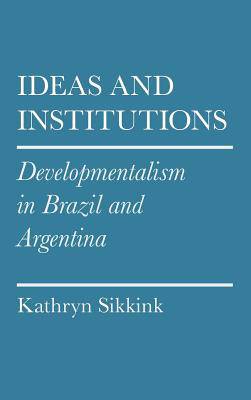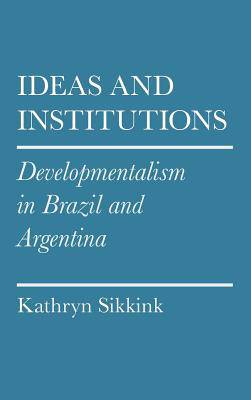
- Retrait gratuit dans votre magasin Club
- 7.000.000 titres dans notre catalogue
- Payer en toute sécurité
- Toujours un magasin près de chez vous
- Retrait gratuit dans votre magasin Club
- 7.000.0000 titres dans notre catalogue
- Payer en toute sécurité
- Toujours un magasin près de chez vous
Description
In Ideas and Institutions, Kathryn Sikkink illuminates a key question in contemporary political economy: What power do ideas wield in the world of politics and policy? Sikkink traces the effects of one enormously influential set of ideas, developmentalism, on the two largest economies in Latin America, Brazil and Argentina.
Introduced under the intellectual leadership of Raúl Prebisch at the U.N. Economic Commission for Latin America, developmentalism was embraced as national policy in many postwar developing economies. Drawing upon extensive archival research and interviews, Sikkink explores the adoption, implementation, and consolidation of the developmentalist model of economic policy in Brazil and Argentina in the 1950s and 1960s, focusing on the governments of Juscelino Kubitschek and Arturo Frondizi, respectively.
In accounting for the initial decision to adopt developmentalist policies in Latin America and the persistence of the policy package in the region, she highlights the importance of political and economic ideas, the comparative effects of different national institutions, and the variable ability of political leaders to mobilize resources and support.
Spécifications
Parties prenantes
- Auteur(s) :
- Editeur:
Contenu
- Nombre de pages :
- 288
- Langue:
- Anglais
- Collection :
Caractéristiques
- EAN:
- 9780801424885
- Date de parution :
- 18-07-91
- Format:
- Livre relié
- Format numérique:
- Genaaid
- Dimensions :
- 163 mm x 243 mm
- Poids :
- 589 g

Les avis
Nous publions uniquement les avis qui respectent les conditions requises. Consultez nos conditions pour les avis.






